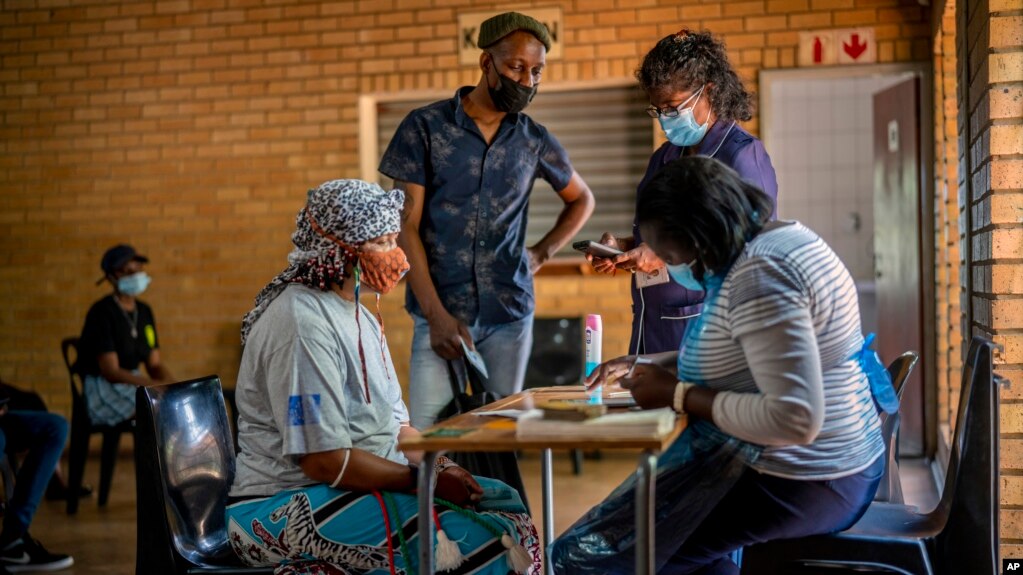オミクロン VS デルタ 未だ霧の中
あと2週間経過すれば、少しは解析が進み、有用なデータが得られるようです。地域、人種、病歴などにより症状や進行度合いが違うです。オミクロン 感染者数が発表されるたび、胸が苦しくなる日々です。早くこの苦しみを取り除いてほしいですね。
VOAで英語を学び、世界の今を、知識を深めましょう!!
オミクロン対デルタ:変異種の戦い(和訳)
Omicron vs. Delta: Battle of the Variants
科学者たちは、コロナウイルスの変異種の戦いで誰が勝利を収めるかを理解するために、入手可能なデータを調査しています。
現在、世界ではデルタ型が主流となっています。しかし、南アフリカとイギリスのデータを調べた結果、一部の科学者は、オミクロン変異種がすぐにデルタを追い越すかもしれないと言っています。
ジェイコブ・レミュー博士は、「まだ始まったばかりですが、...オミクロンは、すべてではないにしても、多くの場所でデルタを凌駕する可能性があります」と述べています。ジェイコブ・レミュー博士は、ハーバード・メディカル・スクールを中心としたグループでコロナウイルスの変異種を研究しています。
しかし、他の専門家は、オミクロンがデルタよりも迅速かつ容易に広がるかどうかを知るには早すぎると述べています。
ミネソタ州ロチェスターにあるメイヨークリニックのウイルス専門家、マシュー・ビニッカー氏は、「オミクロンがデルタよりも早く広がるかどうかは、まだ分かりません」と述べています。同氏は、オミクロンがデルタを追い越すかどうかは”2週間ほどでわかる”と述べています。同氏は、米国ではまだデルタ型が”かなり急増”していると指摘しています。
オミクロンについては、まだ多くの重要な疑問が残されています。このウイルスが軽度の病気を引き起こすのか、それとも重度の病気を引き起こすのかは、まだ明らかになっていません。また、以前に発症したCOVID-19やワクチンによる免疫から逃れることができるかどうかも、まだわかっていません。
拡散の問題については、科学者たちはオミクロンが最初に発見された南アフリカで起きていることを指摘しています。南アフリカでは、オミクロンは急速に広まり、ほとんど支配的な株となっています。医療専門家は、この国が新たな流行の始まりであり、病院が混雑する恐れがあると懸念しています。
11月中旬、南アフリカでは1日平均200人以下のCOVID-19患者が発生していました。しかし、先週は1日あたり10,000人以上の患者が発生しています。専門家によれば、新しい波の中心地であるハウテン州では、新しい症例の90%以上をオミクロンが占めているといいます。この新種は、南アフリカの他の8つの州でも、急速に広まり、主流になりつつあります。
ウィレム・ハネコム氏は、南アフリカ共和国のアフリカ・ヘルス・リサーチ・インスティテュートの所長です。
「ウイルスは非常に速いスピードで広がっています。「現在進行中のこの波の傾斜を見ると、南アフリカが経験した最初の3つの波よりもはるかに急な傾斜になっています」とハネコム氏は言っています。
科学者によると、オミクロンが他の国でも南アフリカと同じように作用するかどうかは不明だといいます。しかし、イギリスでは、「オミクロンがデルタよりも指数関数的に増加する信号のようなものが見られる」とレミュー氏は述べています。
米国では、「まだ不確定要素が多い」といいます。しかし、「南アフリカで観察された結果によると、今後数週間から数カ月の間にオミクロンが主流となり、患者数が急増する可能性が高い」と述べています。
このような急増が公衆衛生にとってどのような意味を持つかは、まだ分かっていません。
ハネコム氏によると、南アフリカでの初期のデータでは、オミクロンの再感染率は初期の変異種よりもはるかに高いとのことです。これは、このウイルスが何らかの免疫力から逃れていることを示唆しています。また、このウイルスは若年層に感染しているようで、ほとんどがワクチンを受けていない人たちであることもわかっています。また、初期の情報では、病院での感染はほとんどが軽度でした。
しかし、専門家によれば、世界の他の地域や患者のグループによって状況は異なる可能性があるといいます。
ビニッカー氏は、「高齢者や基礎疾患のある人に感染者が増える可能性がある場合、何が起こるかを見るのはとても興味深いことです」と述べています。
世界中の人々が答えを待っている間、科学者たちは、人々が自分自身を守るためにできる限りのことをするよう勧めています。
ワクチンを受けていない人はワクチンを受けるべきです。「追加接種を受ける資格がある人は、受けるべきですし、感染を減らすために効果的だとわかっている他のすべてのことをすべきです」。
Omicron vs. Delta: Battle of the Variants
Scientists are examining available data to try to understand who might win the battle of the coronavirus variants.
Right now, the Delta variant is the dominant variant in the world. But after looking at data from South Africa and Britain, some scientists say the Omicron variant may soon overtake it.
“It’s still early days, but … Omicron is likely to outcompete Delta in many, if not all, places,” said Dr. Jacob Lemieux. He researches coronavirus variants for a group led by Harvard Medical School.
But other experts said it is too soon to know whether Omicron will spread more quickly and easily than delta.
Matthew Binnicker is a virus expert at the Mayo Clinic in Rochester, Minnesota. He said “we’ll know in about two weeks” whether Omicron will overtake Delta. He noted that the U.S. is still seeing “significant surges” of the Delta variant.
Many important questions about Omicron remain unanswered. It is still unclear if the virus causes milder or more severe illness. It is also not yet known if it might escape immunity from earlier COVID-19 illnesses or vaccines.
On the issue of spread, scientists point to what is happening in South Africa, where Omicron was first found. Omicron has quickly spread there and has nearly become the dominant strain. Health experts worry the country is at the start of a new wave that may overcrowd hospitals.
In the middle of November, South Africa averaged less than 200 COVID-19 cases per day. But last week, the country saw more than 10,000 cases per day. Experts say omicron makes up more than 90 percent of the new cases in Gauteng province, the center of the new wave. The new variant is quickly spreading and becoming dominant in South Africa’s eight other provinces, as well.
Willem Hanekom is director of the Africa Health Research Institute in South Africa.
“The virus is spreading extraordinarily fast,” Hanekom said. “If you look at the slopes of this wave that we’re in at the moment, it’s a much steeper slope than the first three waves that South Africa experienced.”
Scientists say it is unclear whether Omicron will act the same way in other countries as it has in South Africa. But in Britain, Lemieux said, “we’re seeing what appears to be a signal of exponential increase of Omicron over Delta.”
In the United States, “there’s still a lot of uncertainty,” he said. But “based on what we’ve observed in South Africa, it’s likely to become the dominant strain in the coming weeks and months and will likely cause a surge in case numbers.”
It is not yet known what such a surge would mean for public health.
Hanekom said early data from South Africa show that reinfection rates are much higher with Omicron than earlier variants. That would suggest the virus is escaping some immunity. It also shows the virus seems to be infecting younger people, mostly those who are unvaccinated. Early information also shows most cases in hospitals have been mild.
But experts say the situation could be different in other parts of the world or in different groups of patients.
“It’ll be really interesting to see what happens when more infections potentially occur in older adults or those with underlying health conditions,” Binnicker said.
As the world waits for answers, scientists suggest people do all they can to protect themselves.
If “people are not vaccinated they should get vaccinated,” Lemieux said. “If people are eligible for boosters, they should get boosters, and then do all the other things that we know are effective for reducing transmission.”
Words in This Story
variant — n. different in some way from others of the same kind
dominant — adj. more important, powerful, or successful than most or all others
significant — adj. large enough to be noticed or have an effect
strain — n. a group of closely related plants or animals
steep — adj. going up or down very quickly
exponential — adj. very fast ; increasingly rapid
eligible — n. able to be chosen for something
booster shot — n. an extra amount of a vaccine that is injected with a needle into a person or animal to help protect against a disease
